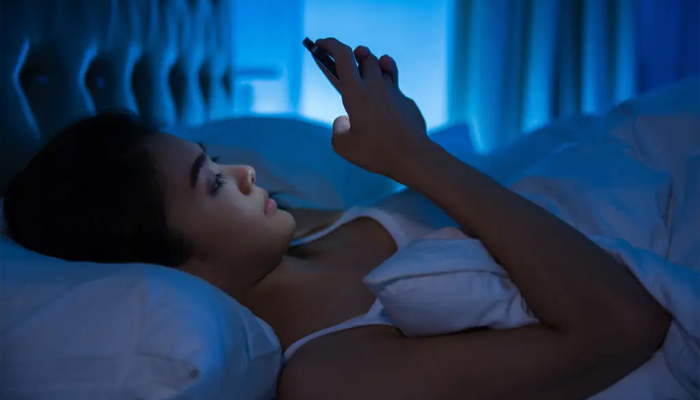Parents and health experts have long cautioned teens about the dangers of using screens before bedtime.
Thinking that late-night scrolling on social media or binge-watching videos disrupts sleep and leads to tired, cranky kids the next day. However, a new study from New Zealand suggests it might be time to rethink this advice.
Researchers discovered that screen time in the two hours before bed had minimal effect on adolescents’ sleep. What was more significant was whether they used screens after getting into bed. Published in JAMA Pediatrics, the new study provides a more detailed understanding of how different types of screen usage influence sleep among young people.
Connection between screen time and sleep
The research findings challenge some long-held beliefs. Screen time within the two hours before bed had little significant impact on most aspects of sleep health. On average, teens spend around 56 minutes on screens during this time. While this use was linked to later bedtimes, it was balanced out by later wake times, leading to no overall change in sleep duration. In contrast, using screens after getting into bed was associated with shorter sleep. Participants typically spent 16 minutes on their devices while lying in bed before trying to sleep. For every 10 minutes of screen time during this period, total sleep time decreased by three minutes.
Impact of different screen activities
The type of screen activity really matters, too. Interactive stuff, like gaming or switching between multiple devices, was especially disruptive. For every 10 minutes teens spent on interactive screens while in bed, their sleep time dropped by 9 minutes. Even passive activities like watching videos cut into their sleep, but not as much.
“It became obvious that teens are spending a lot of their screen time in bed,” Dr. Brosnan notes. “What stood out in our findings was that screen time before getting into bed had little effect on their sleep that night. However, once they were in bed, using screens significantly impaired their sleep—delaying their ability to fall asleep by about half an hour and reducing their overall sleep time.”
Implications for sleep guidelines
These findings suggest that current sleep hygiene recommendations, which often advise against all screen use in the hour before bed, might need to be updated. Dr. Brosnan and his team advocate for a more nuanced approach that acknowledges how teens actually use screens. The study also emphasised the importance of differentiating between various times of evening screen use. The period between getting into bed and trying to sleep—known as “shut-eye latency”—was found to be particularly significant, as screen use during this time was more strongly linked to reduced sleep than usage earlier in the evening.
Interestingly, the study found no strong connection between screen use and sleep quality measures, such as how quickly participants fell asleep or how often they woke up during the night. This indicates that screen time mainly affects sleep by pushing back bedtimes rather than disrupting sleep itself. The researchers also looked into whether following current guidelines about stopping screen use 30, 60, or 120 minutes before trying to sleep made a difference. They found no link between the time since the last screen use and any sleep measure, which further challenges existing recommendations.
While the study offers valuable insights, it does have limitations. The sample size was relatively small, and the participants’ parents were highly educated, which may affect how widely applicable the results are. Additionally, the study focused on a narrow age range, just before significant changes in sleep preferences typically occur in late adolescence.
Despite these limitations, the findings raise important points for parents, health professionals, and policymakers. They suggest that a one-size-fits-all approach to screen time and sleep may not be the best strategy. Instead, reducing screen use once in bed, especially for interactive activities, could be a more effective way to improve adolescent sleep. “Our findings indicate that screen time mainly delays sleep onset rather than directly affecting sleep through blue light or interaction, as we didn’t find links with how quickly they fell asleep or woke up during the night,” says Brosnan. “We need to rethink sleep guidelines to better match the realities of modern life, as the current ones aren’t practical or suitable.”

